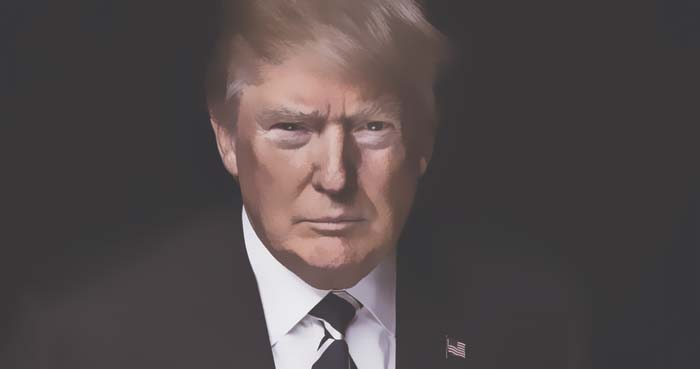
“The business of America is business,” said President Calvin Coolidge. President Eisenhower’s defense secretary, Charles “Engine Charlie” Wilson, coined the phrase, “What is good for General Motors is good for the country and vice versa.”
Americans have always been a little unsure about where to draw the line between public and private interest. In Joseph Heller’s novel “Catch-22,’’ the squadron’s mess officer, Milo Minderbinder, goes all the way: His hugely profitable M&M Enterprises ends up bombing his own squadron under the terms of a deal he has struck with the Germans. “What’s good for M&M Enterprises,” declares Milo, “is good for the country.”
Meanwhile, Heller’s hero, Yossarian, has to deal with the equally insane logic of bureaucracy — to be precise, Catch-22, “which specified that a concern for one’s safety in the face of dangers that were real and immediate was the process of a rational mind.” If you were crazy, you could be grounded. All you had to do was ask. But as soon as you did, you would no longer be crazy and would have to fly more missions.
Today, having elected Donald Trump to be their next president, Americans confront a new Catch-22.
Many citizens voted for Trump precisely because they saw him as a successful businessman. Now that he is president-elect, what do the darned liberals want? That he should give up business. The new Catch-22 states that a concern for the profitability of one’s own business is a good predictor of presidential ability. Trump is a successful businessman and should be elected. All he has to do, now that he has been elected, is to stop being a successful businessman. “You’ve made your money,” Peggy Noonan urged Trump in her Wall Street Journal column. “Now go be a patriot.”
Trump himself seems torn. This was how he explained his position to The New York Times last week: “In theory, I can be president of the United States and run my business 100 percent. . . . In theory I could run my business perfectly, and then run the country perfectly. . . . So in theory I don’t have to do anything.”
But relax. “I don’t care about my company,” Trump insisted. “It doesn’t matter. My kids [will] run it. . . . The only thing that matters to me is running our country.”
Glad we’ve straightened that out, sir. Trump’s priority is going to be running the country. But if the business interests of the Trump Organization should happen to come up — as they did when Trump was on the phone to the Argentine president last week, for example — well, hey, whatever, Ivanka’s handling it.
In short, we have just elected Milo Minderbinder to be president.
Now, at this point you are probably expecting me to join in the chorus of condemnation. I wish I could. Unfortunately, the liberal position on this issue is in fact a rather weak one. Trump is right. There is no legal requirement that he should sell his business on entering the White House. As Harvard’s Noah Feldman has pointed out, the only constraint is Article 1, Section 9, Clause 8 of the Constitution, which prohibits him from receiving any “emolument” from a foreign state without the permission of Congress. To insist that this obliges Trump to put all his assets in a blind trust is to stretch the point.
The notion of a complete separation of business and public activity is, in any case, a 19th-century invention. From an 18th-century vantage point, politics was expected to be the continuation of private interest by other means. In that sense, Trump is a familiar Hanoverian type: an arriviste, a nabob with estates all around the world, a lover of conspicuous consumption, an alpha male intent on founding a dynasty. Snobs may sneer. They cannot stop him.
Come to think of it, Trump is also a familiar 21st-century type. Look around you, from the Volga to Vladivostok, from Central Asia to South Africa, from Beijing to Buenos Aires. Aside from Canada, Western Europe, and Australasia, it is an oligarch’s world. And the defining characteristic of oligarchy is that there is no line between the private and the public. Just ask Trump’s favorite world leader and plutocrat, Vladimir Putin. Back in 1989, we thought we were witnessing the triumph of capitalism and liberal democracy. Alas, we were wrong. It turns out the winners were oligarchy and the populism that legitimizes it.
The tragedy of oligarchy is that businessmen are generally quite bad at politics. It is just so much easier to collect money in the form of taxes paid to government — the ultimate monopoly — than to make profits in a competitive marketplace. That is precisely why the Victorians came up with idea of sea-green incorruptible public servants. They saw what a mess the East India Company had made of India.
The Catch-22 of the Victorian system was that the incorruptibles became so detached from the world of business that ultimately their asceticism led them to socialism.
The Catch-22 of our time is that the oligarchs become so detached from the lives of ordinary people that ultimately they get impeached. The Democrats have just under two years to figure out how to win back Congress. If they can do it, President Minderbinder’s days in the White House will be numbered.
Niall Ferguson is a senior fellow with the Hoover Institution at Stanford University.
Previously:
• 11/10/16: Populism as a backlash against globalization: Historical perspectives
• 10/05/16: Simplifiers v. complicators
• 09/27/16: From Jolie-Pitt to the jolly pit of globaloney
• 09/21/16: The fight isn't going Hillary's way
• 06/28/16: The year of living improbably
• 05/17/16: Welcome to 1984
• 04/19/16: The rise of caveman politics
• 04/05/16: Tay, Trump, and artificial stupidity


 Contact The Editor
Contact The Editor
 Articles By This Author
Articles By This Author